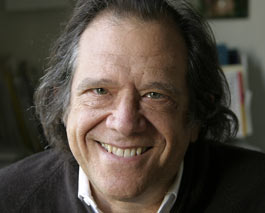Can the Left Find God?
 A foolish person doesn’t recognize that one can learn much from opponents. So liberals have begun to understand that they need God on their side as much as the Christian Right does. The lesson from conservatives, said Rabbi Michael Lerner, is that it’s okay to base policy on faith and spiritual values, and it’s important to stand up for what you believe in. “When they come to a decision about what they believe in, they fight for it,” he said of the Christian Right in a recent interview. “And they’re willing to lose an election for the sake of what they believe in.”
A foolish person doesn’t recognize that one can learn much from opponents. So liberals have begun to understand that they need God on their side as much as the Christian Right does. The lesson from conservatives, said Rabbi Michael Lerner, is that it’s okay to base policy on faith and spiritual values, and it’s important to stand up for what you believe in. “When they come to a decision about what they believe in, they fight for it,” he said of the Christian Right in a recent interview. “And they’re willing to lose an election for the sake of what they believe in.”

 It might sound like a lame excuse. But if a man cheats on his wife, he might explain himself this way: “I couldn’t help it. My evolved psychological mechanisms made me have an affair.” And he’d be right. Sort of.
It might sound like a lame excuse. But if a man cheats on his wife, he might explain himself this way: “I couldn’t help it. My evolved psychological mechanisms made me have an affair.” And he’d be right. Sort of. The temptation when writing about Tristram Shandy: A Cock and Bull Story is to try something really clever.
The temptation when writing about Tristram Shandy: A Cock and Bull Story is to try something really clever. Today marks the release of Brian De Palma’s adaptation of The Black Dahlia, and I’m torn.
Today marks the release of Brian De Palma’s adaptation of The Black Dahlia, and I’m torn.